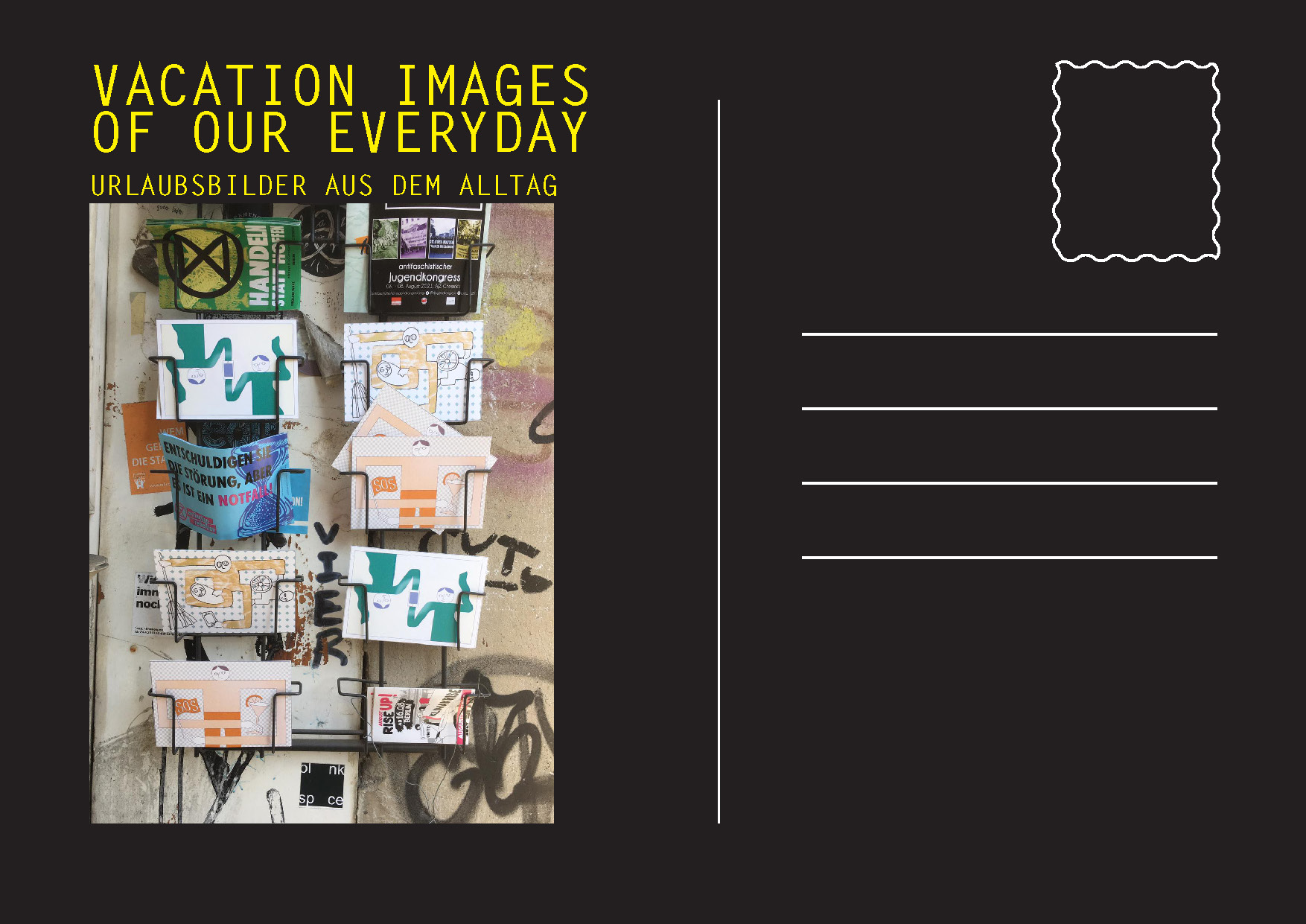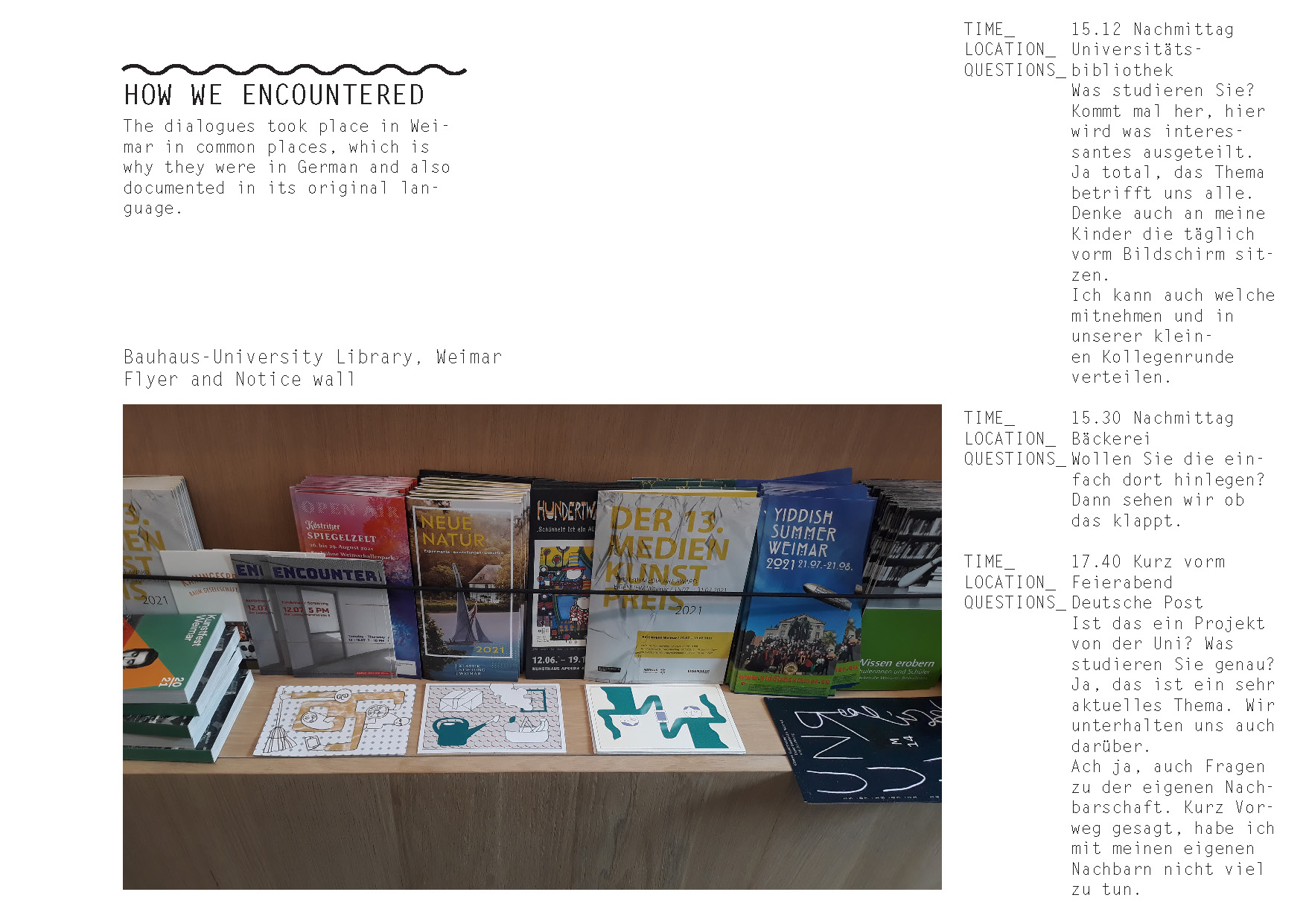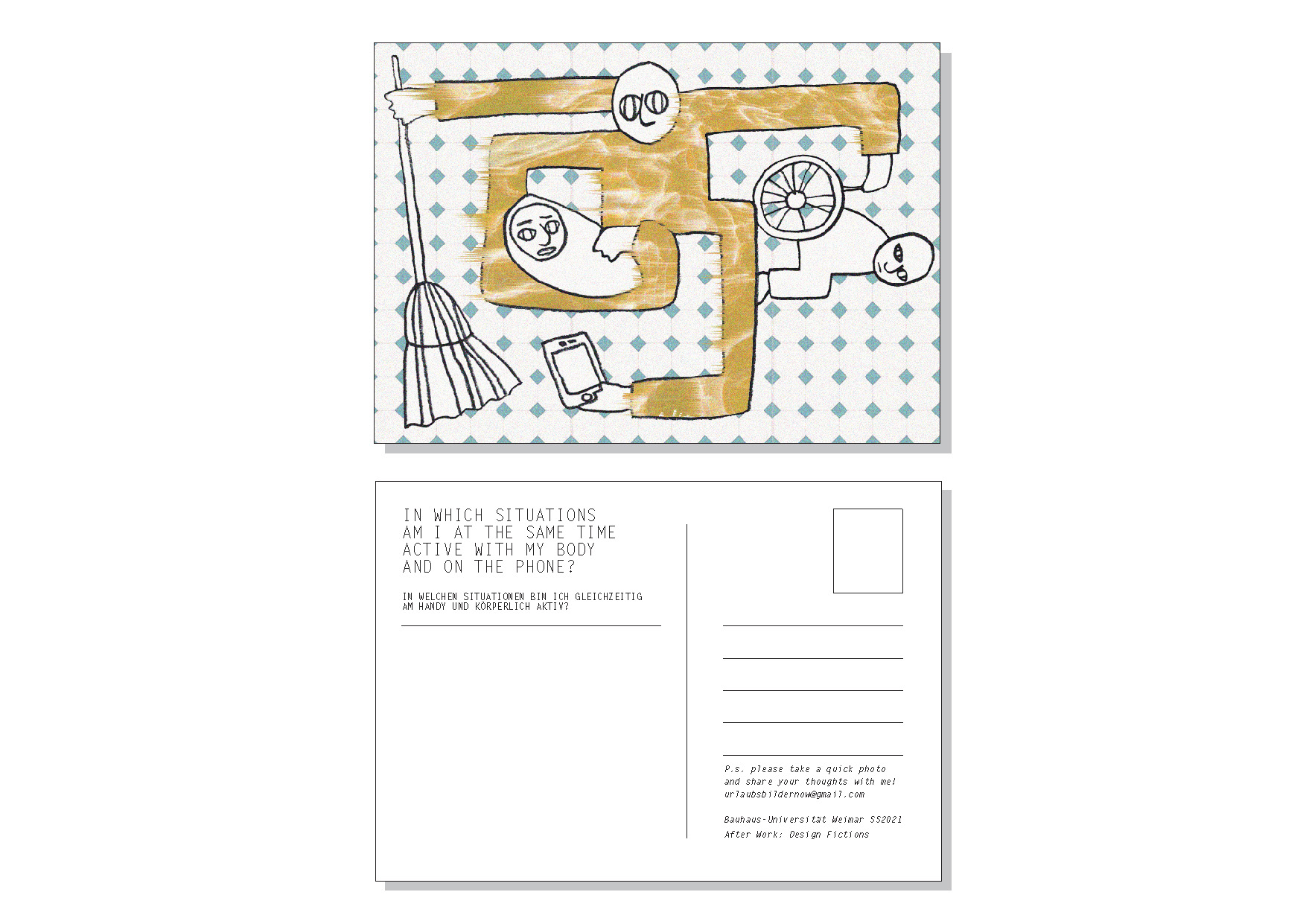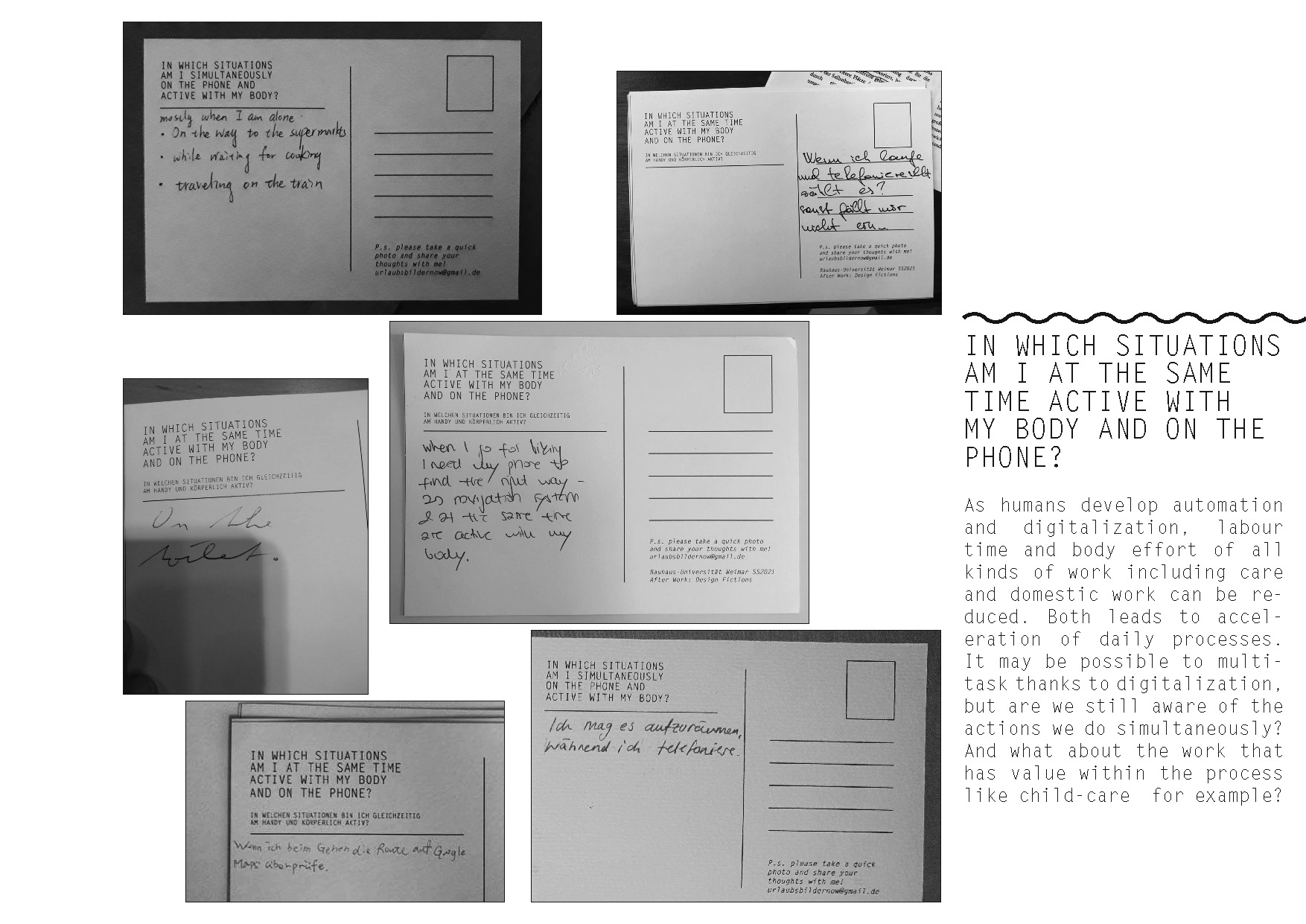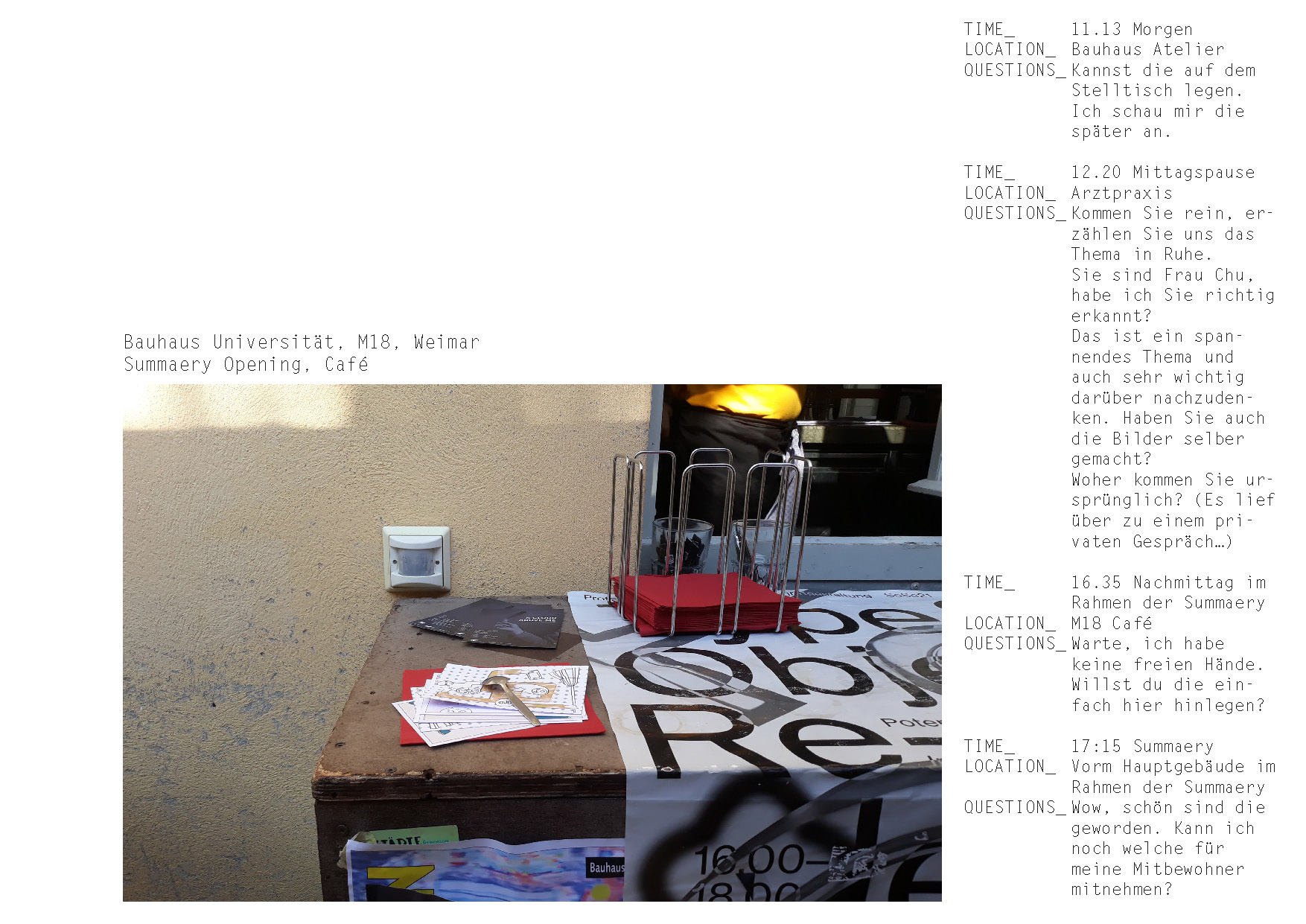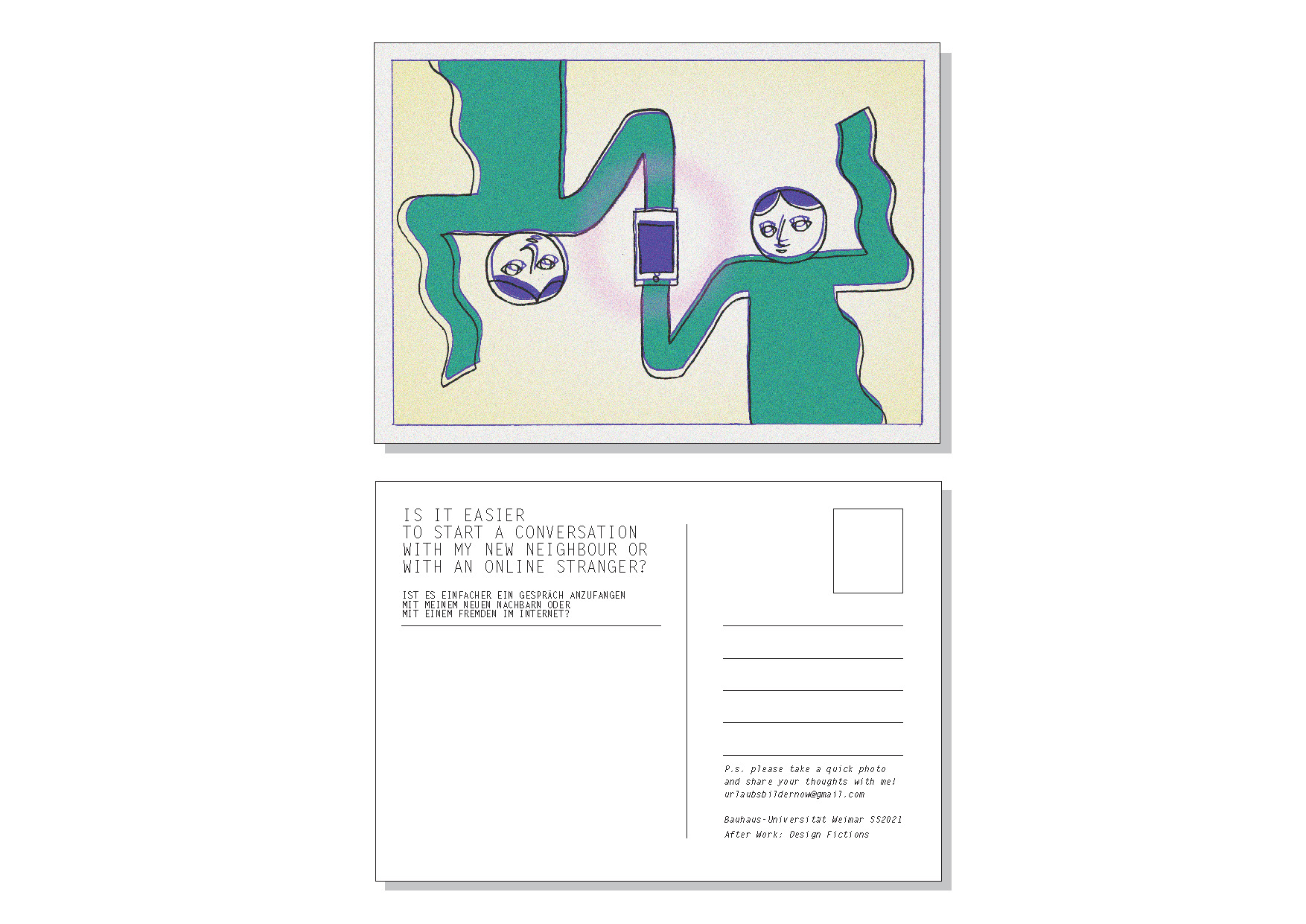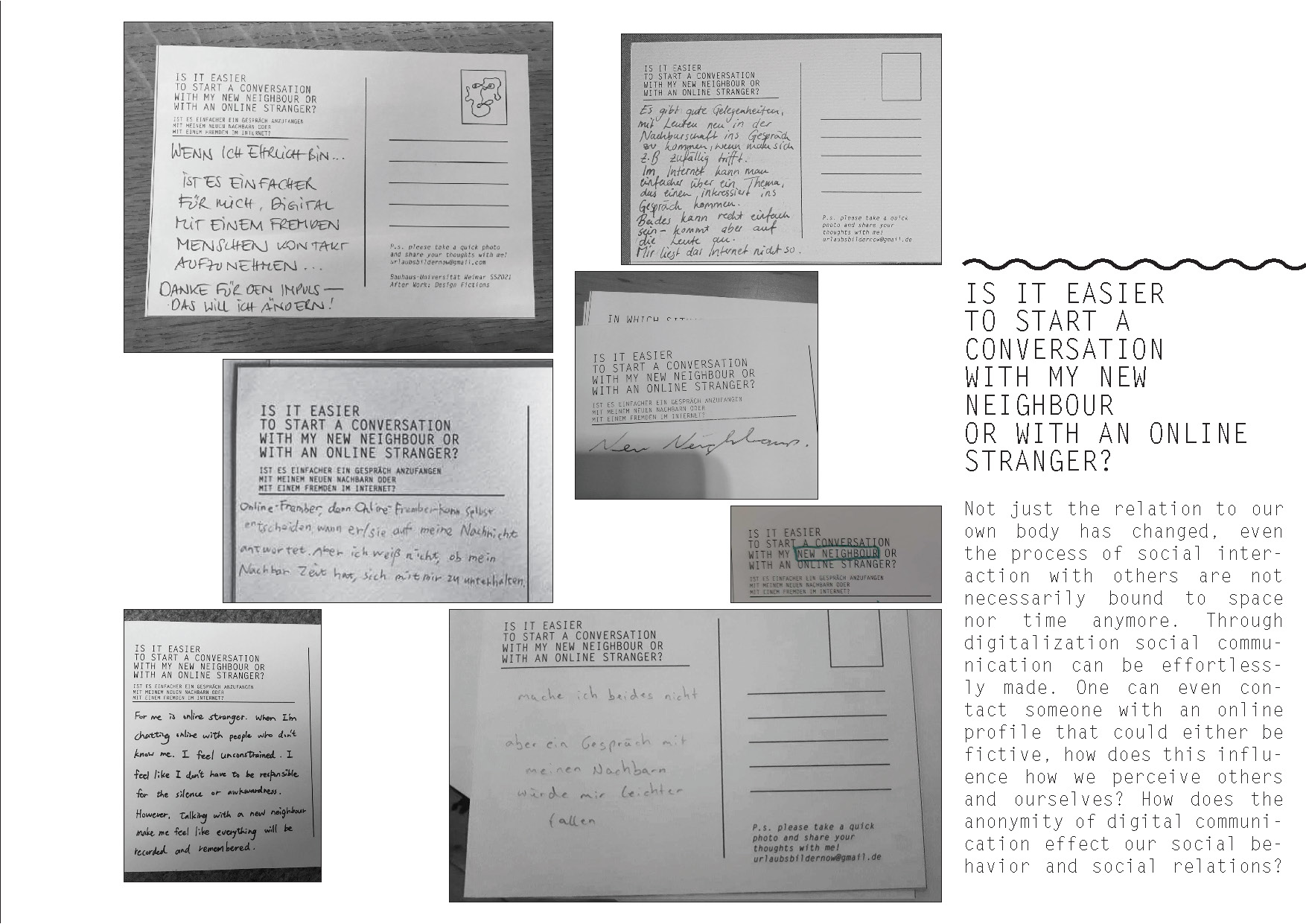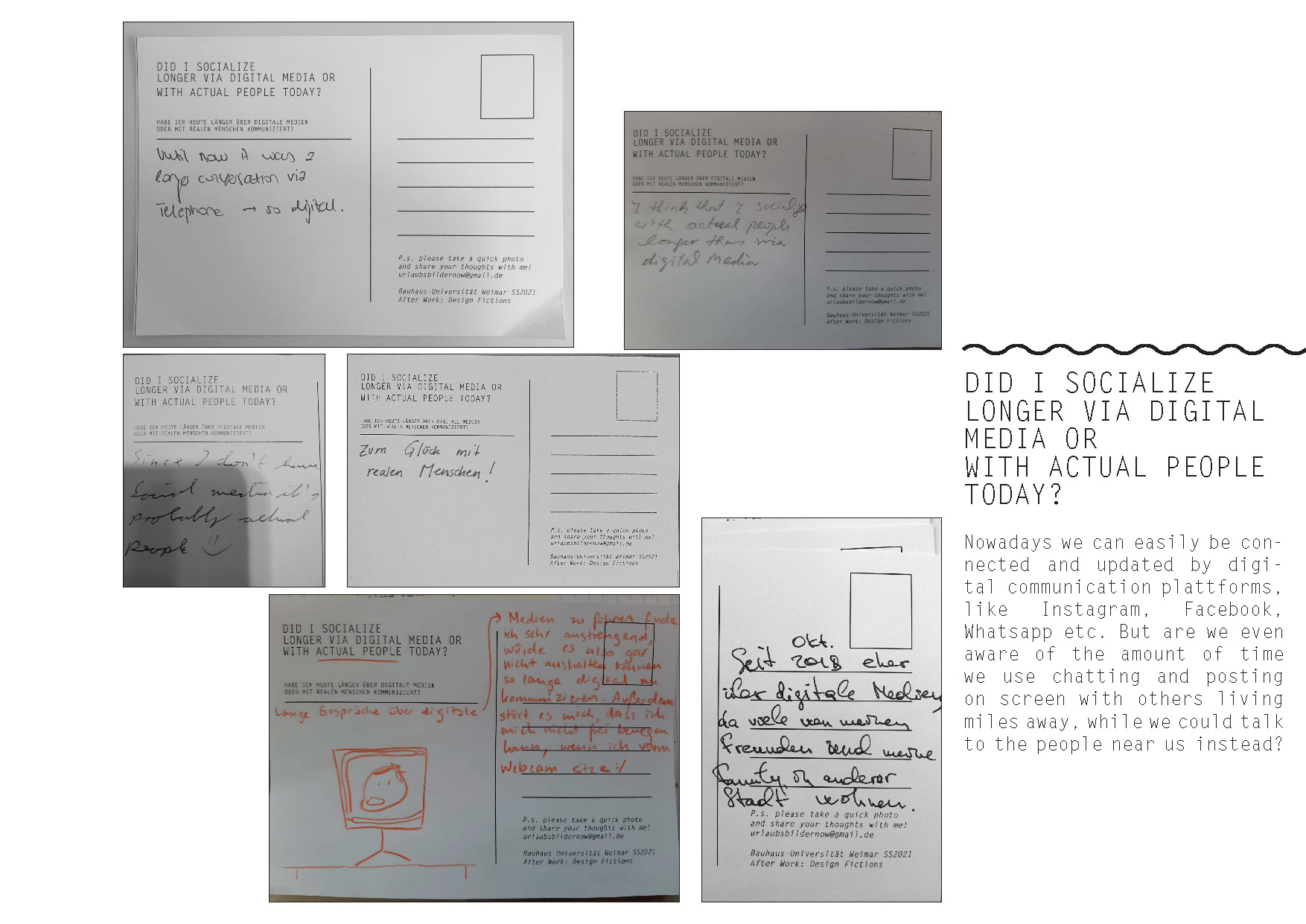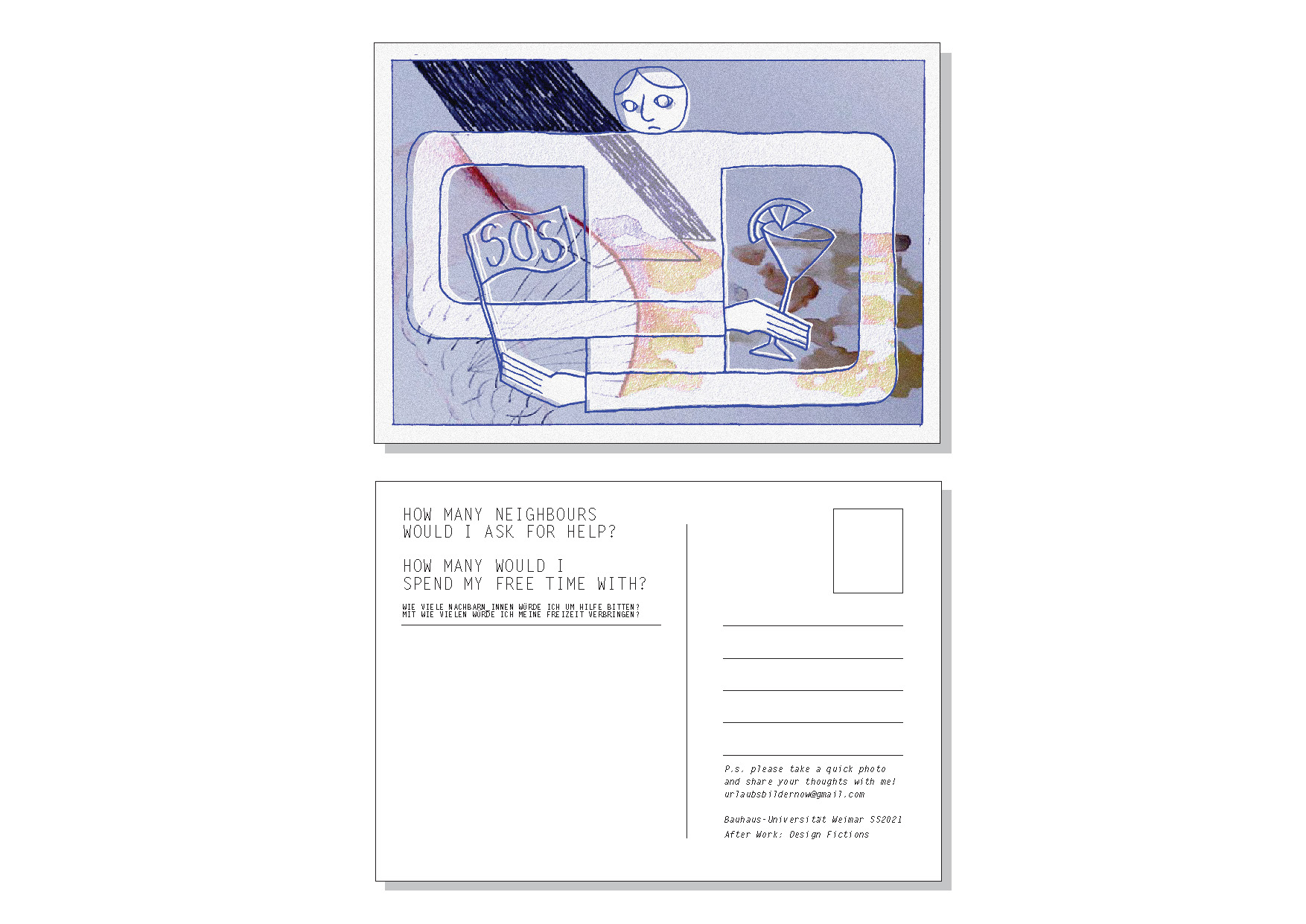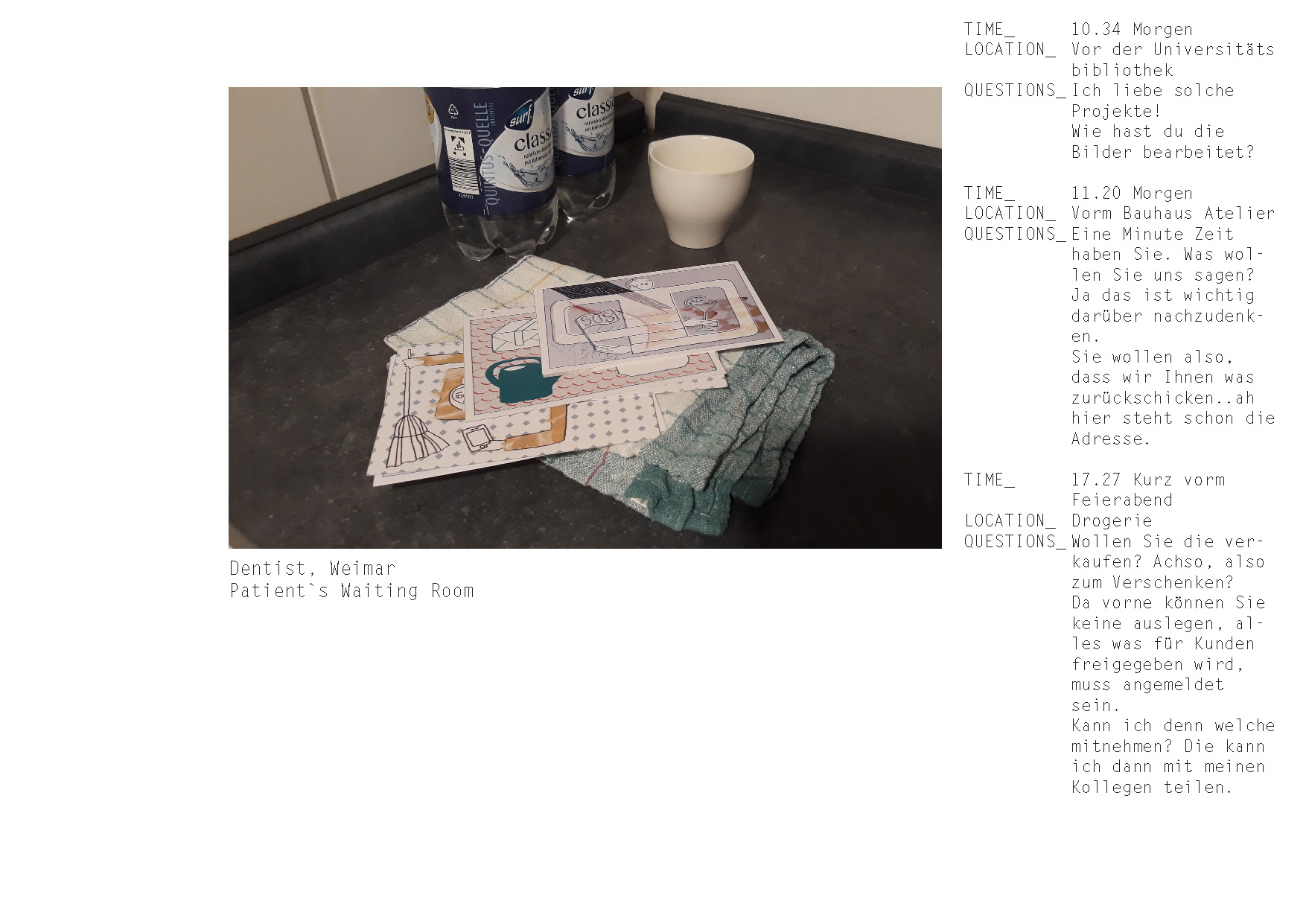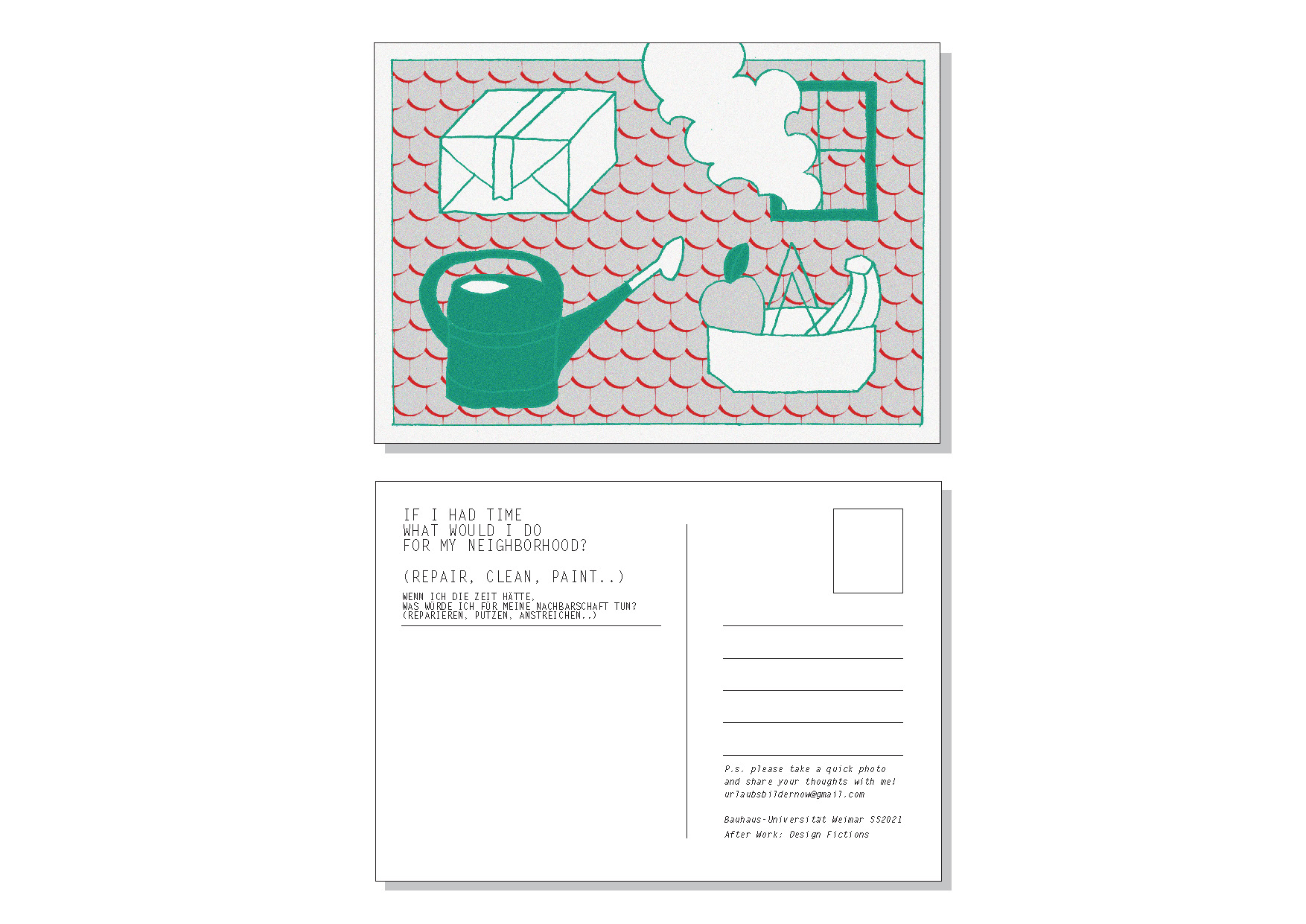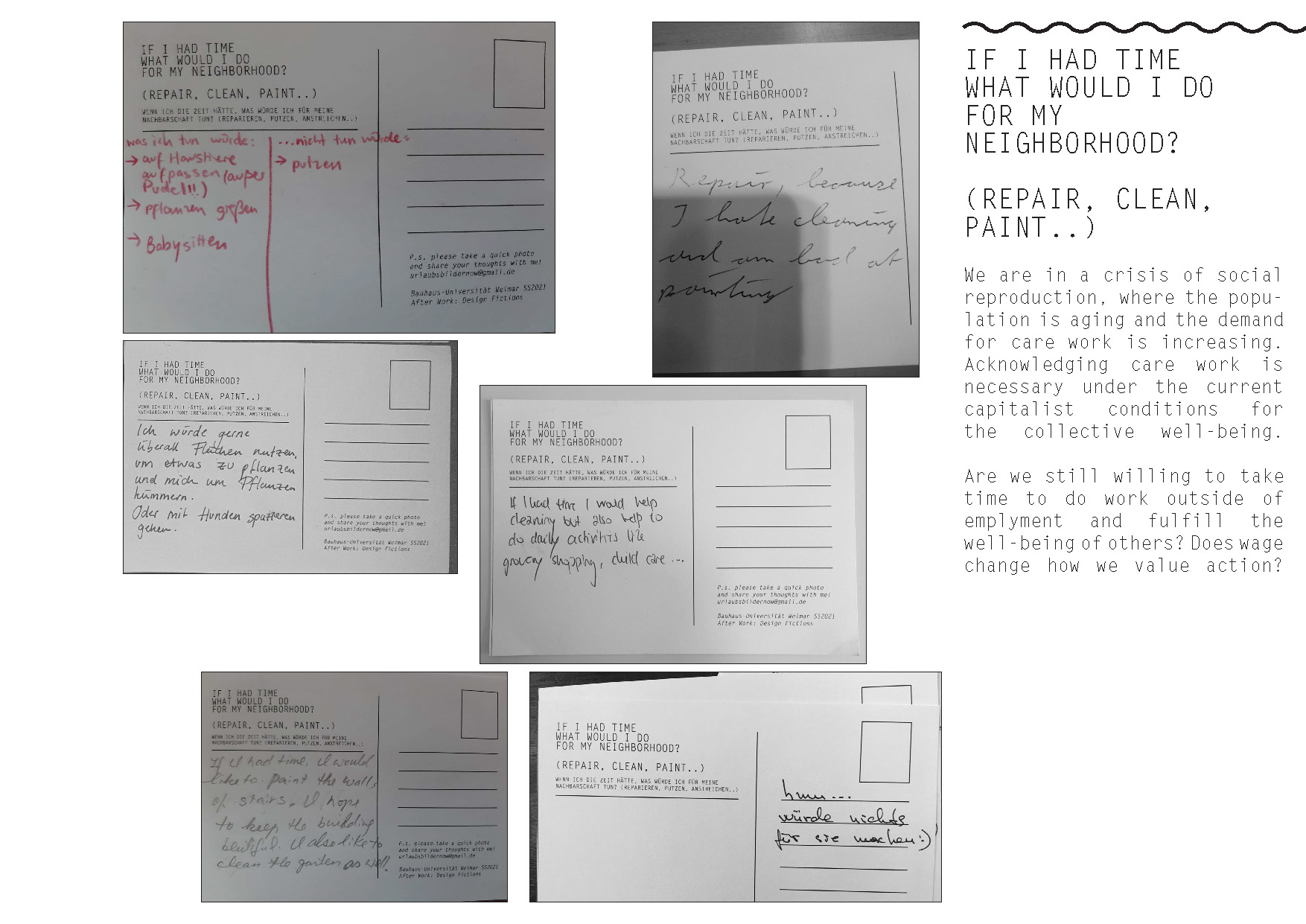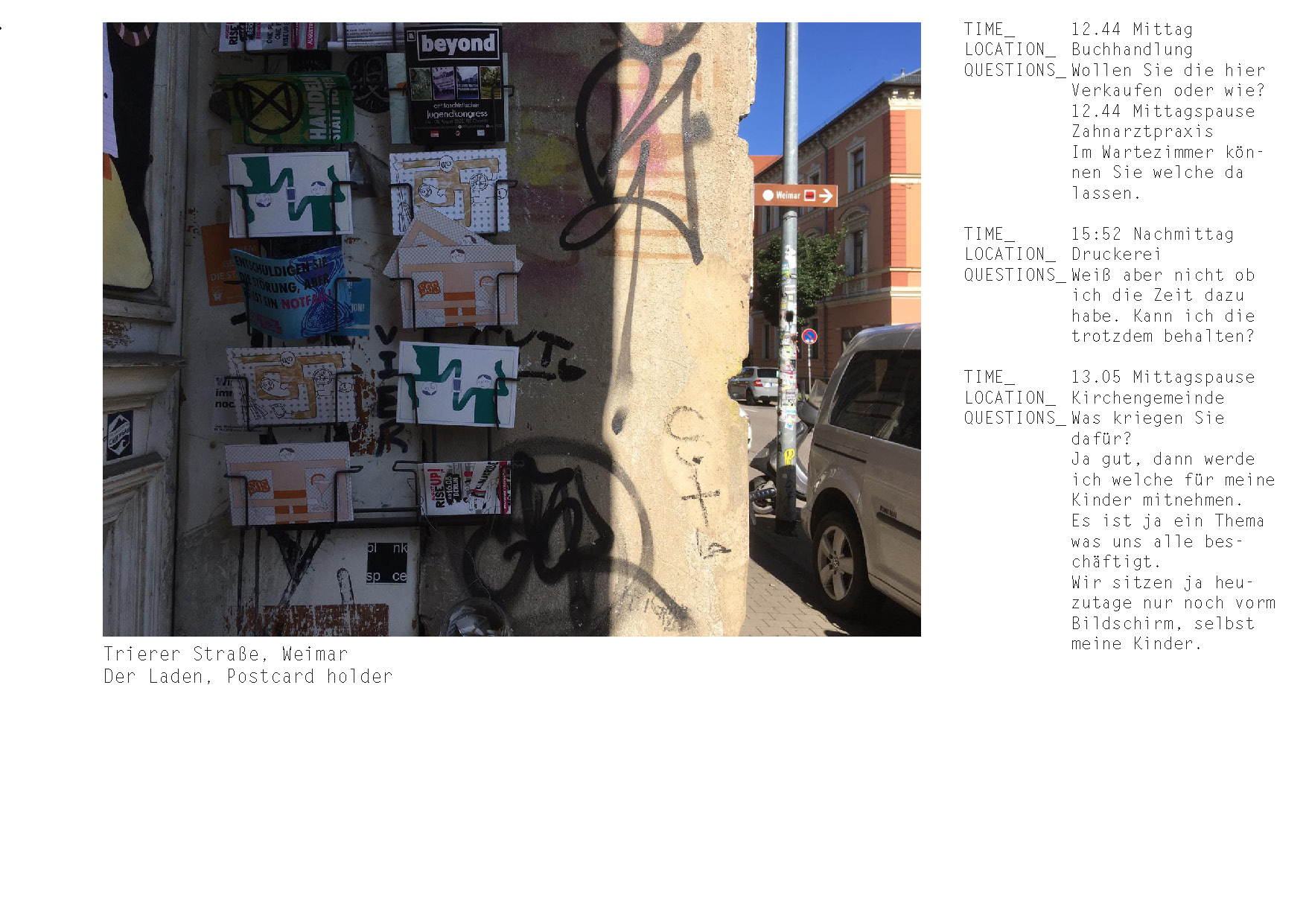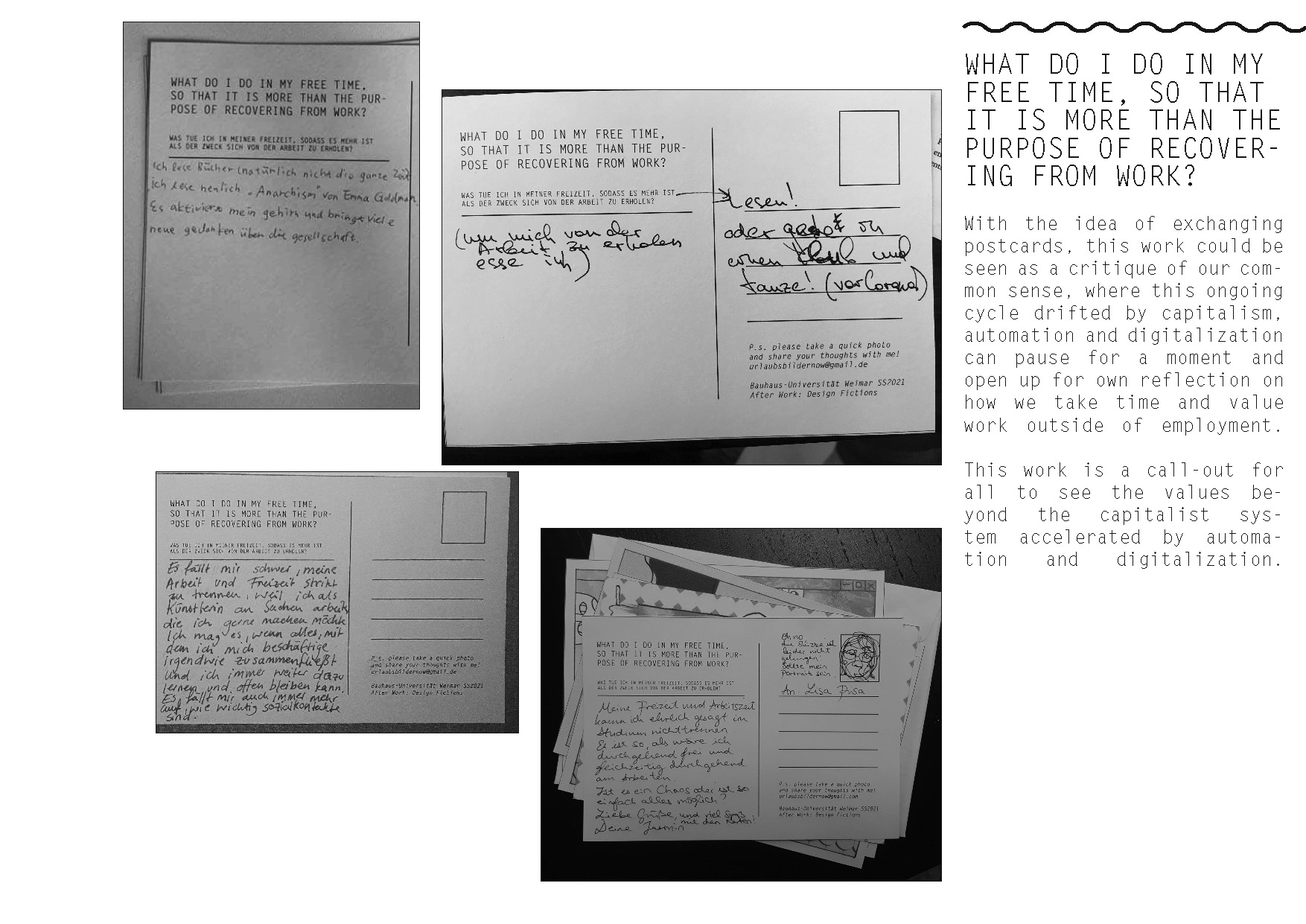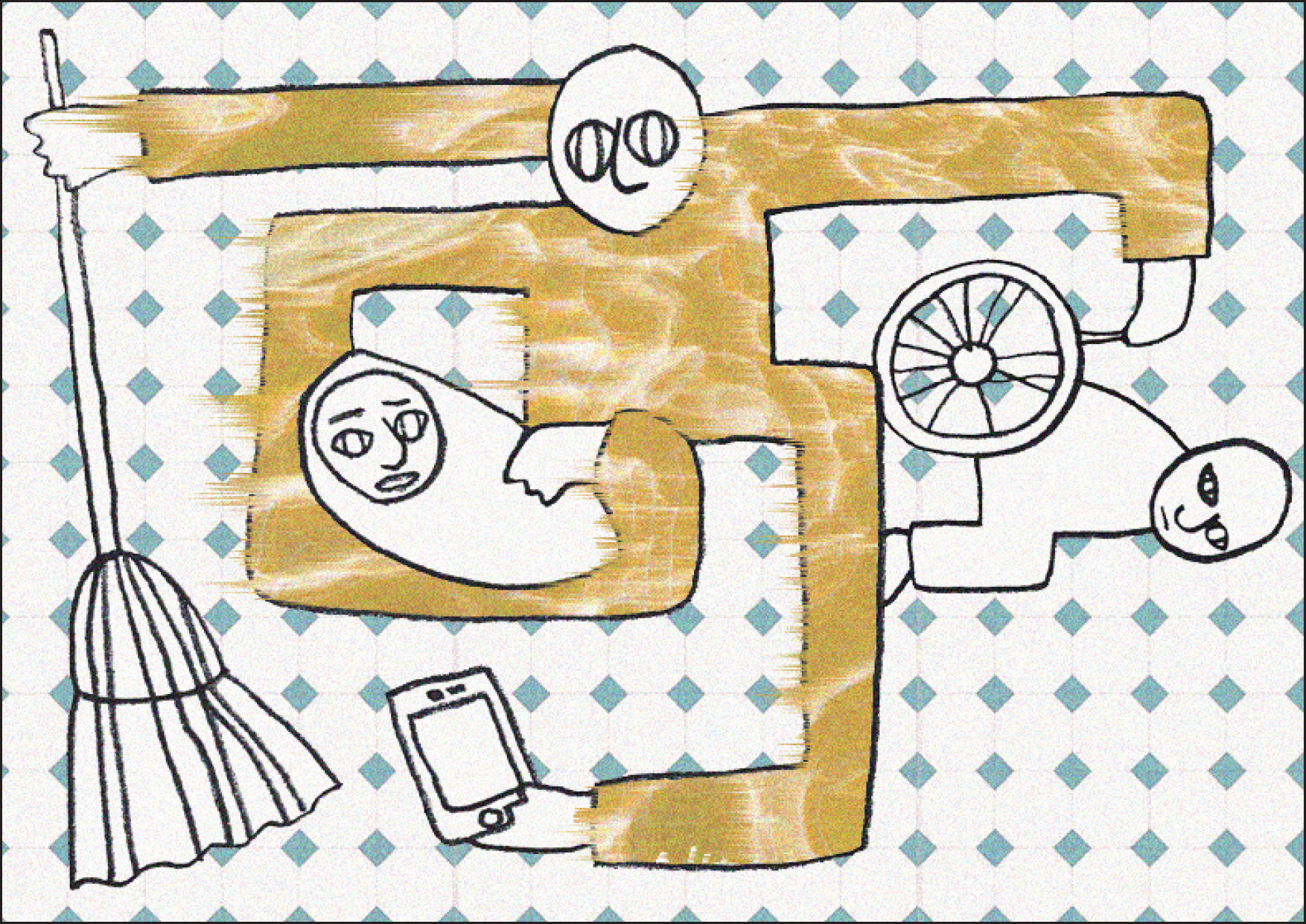Vacation Images of Our Everyday
Jasmin Chu
Suppose we look up the definition of Vacation, the word origins from the Latin word ‘vacātiō’, which means exemption from service, a respite from work. It doesn’t necessarily mean travelling, nor being away from home. The term is also associated with paid free time, which enables one to return to work. What does this mean in the contexts of un-paid household care and domestic work? In what ways has the process of automation affected this system? How could a designed item such as a postcard get people to rethink the common sense fictions around notions of work time and free time that are changing through automation?
In this project, postcards–an essential part of a normal ‘vacation experience’-were used to trigger alternative ideas about what work time and free time could mean in everyday life. The postcards were spread out in familiar places in Weimar so that the discussion extended beyond the university premises. They were placed in bakeries, libraries, supermarkets, cafés, post offices and dentist waiting rooms. The front of the card portrays a conceptual sketch that grabs the attention of the passersby but at the same time leaves enough space for personal interpretation. The postcard format provided an easily usable tool for the inhabitants of Weimar to share stories from their everyday lives with others while simultaneously engaging
in self-reflection about the way they spend their time and the value behind their actions.
